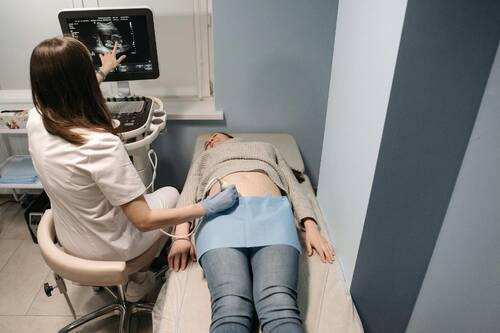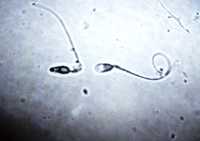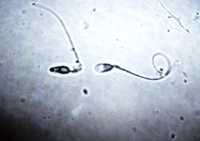MedicalResearch.com Interview with:
Dr. Liron Rozenkrantz
Postdoctoral Fellow
Department of Brain and Cognitive Sciences, Massachusetts Institute of Technology
Program in Placebo Studies, Harvard Medical School
Former PhD student at Human Olfaction Research group, Department of Neurobiology
Weizmann Institute of Science
Reut Weissgross
Research student
Human Olfaction Research group, Department of Neurobiology
Weizmann Institute of Science
MedicalResearch.com: What is the background for this study?
Response: A pregnancy loss is not such a rare event as you would think: it is estimated that about 50% of all conceptions (or 15% of the documented pregnancies) end in spontaneous miscarriage. About 1-2% of all couples trying to conceive will experience recurrent pregnancy loss (RPL), meaning 2-3 consecutive miscarriages, and despite going through numerous clinical investigations (hormonal tests, genetics and so) - about
half of these cases will remain unexplained. This devastating phenomenon leaves couples with no explanation as to why they cannot bear a child. While most research in this field is focused on the reproductive organs (mainly the uterus), hormones and genes, we set out to look for new possible routes.
The literature regarding the tight connection between olfaction and reproduction, mainly by social body-odors (or pheromones), is heavily documented, especially in rodents. Body-odors emitted from males affect pubertal development of juvenile female rodents and estrus cycle, and females body odors affect other females’ fertility state. The most robust phenomenon in this relation is the Bruce effect, in which pregnant female mice who are exposed to body-odors from a non-stud male - will experience impanation failure in 80% of exposures! Since there is growing evidence for the involvement of the olfactory system in human reproduction, we asked whether the olfactory system is also involved in human reproductive disorders such as unexplained recurrent pregnancy loss (uRPL).
To answer this question, we recruited 40 women experiencing uRPL and 57 matched controls (who never experienced a miscarriage, and are at similar age to the uRPL women), and compared their olfactory profile, mainly in response to men’s body-odors.
(more…)
 The complex interplay between lifestyle and fertility has become an area of significant interest within reproductive medicine. Prevailing research underscores the influence of dietary habits, physical activity, stress management, and sleep patterns on reproductive health, while harmful behaviours like smoking and alcohol consumption further complicate the fertility landscape. As we uncover these intricacies, it invites a deeper exploration into how lifestyle modifications can potentially enhance fertility outcomes. With this understanding, we stand on the precipice of a transformative approach to fertility management, one that encompasses a broader, more holistic view of reproductive health.
The complex interplay between lifestyle and fertility has become an area of significant interest within reproductive medicine. Prevailing research underscores the influence of dietary habits, physical activity, stress management, and sleep patterns on reproductive health, while harmful behaviours like smoking and alcohol consumption further complicate the fertility landscape. As we uncover these intricacies, it invites a deeper exploration into how lifestyle modifications can potentially enhance fertility outcomes. With this understanding, we stand on the precipice of a transformative approach to fertility management, one that encompasses a broader, more holistic view of reproductive health.


























